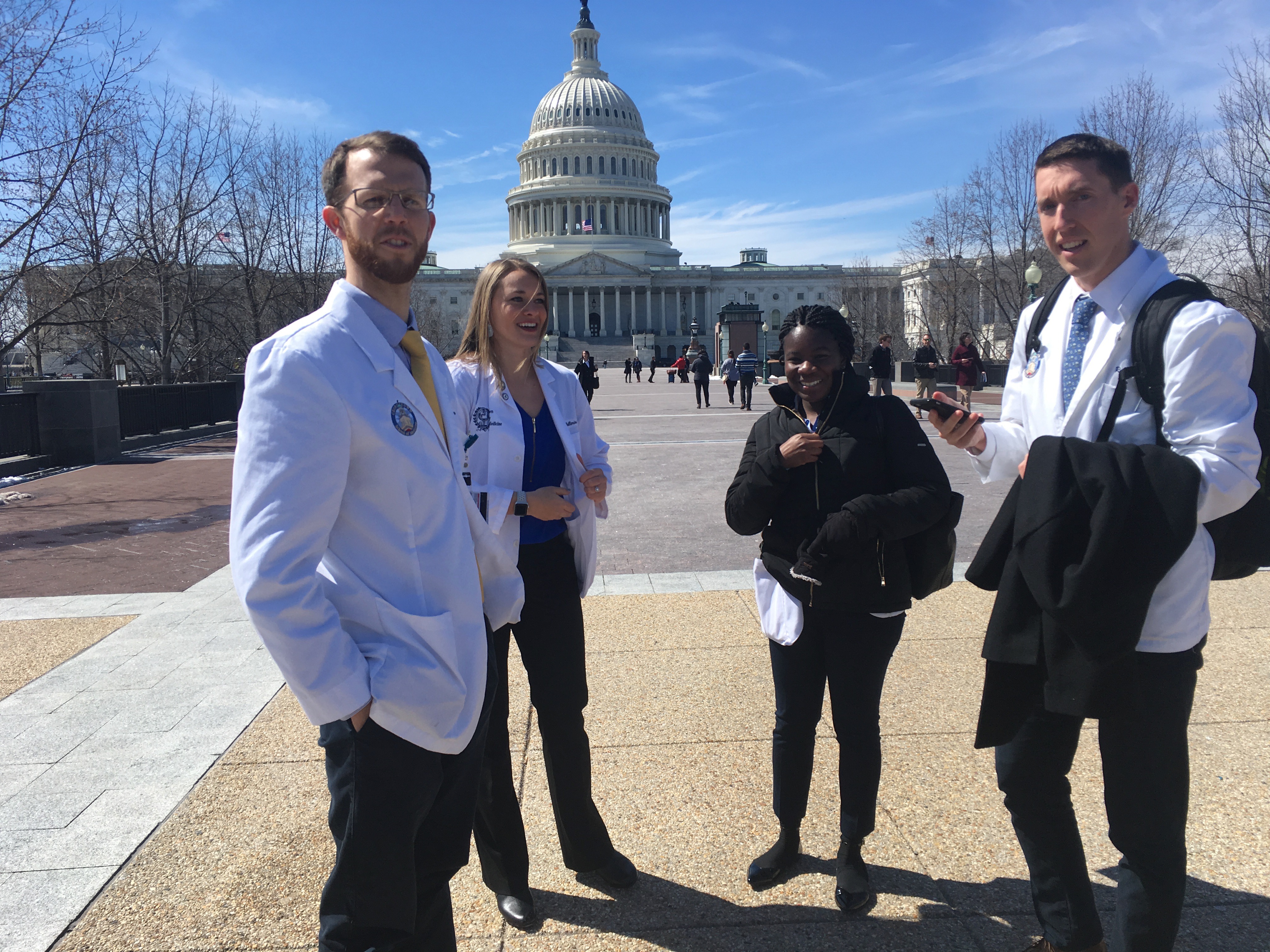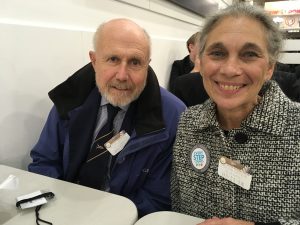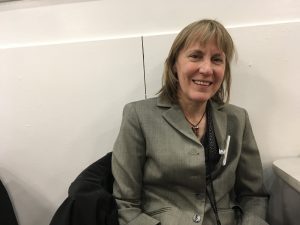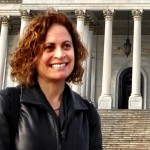
“March madness” usually means basketball. But a different form strikes Congress every year. This month, like every March, Alaskans were among the thousands of constituents who flood Capitol Hill, aiming to persuade their members of Congress to vote for a bill, take up a cause, or just hear them out.
The group in orange scarves? That’s YWCA. Red and white scarves? The Diabetes Association. If you see lab coats, that can be osteopaths or pharmacists. But on one recent day at the Capitol, it was medical students wearing the white coats as the lobbied for a bill to provide services to the homeless.
“We wanted to look official,” one of them said. “We went to see Rep. Jamie Raskin of Maryland, the 8th District. That’s because he’s my actual rep. ”
And that’s the idea of the Hill visit: you come to Washington for a convention or conference. Then you go to the Capitol and reach out to your own representative and senators. (March is high season for it, maybe because a lot of conferences are timed to coincide with the cherry blossoms.)
A cynic would say politicians only grant access to donors or lobbyists. Pay to play – that’s the conventional wisdom. But Kerry Howard of Juneau couldn’t believe her luck. She was in a basement cafeteria at one of the House office buildings. It was early afternoon, and she had completed the Alaska trifecta, in just half a day.
“We’ve already had lunch and met with all three of our offices,” Howard said. “All three of them!”
Howard came to advocate for Parkinson’s research. She was with Rocky Plotnick and Plotnick’s husband, Mike Singsaas, of Anchorage.
“So we saw Sen. Murkowski, Sen. Sullivan and Congressman Young’s staffer,” Plotnick marveled.

Neither Howard nor Plotnick are Republican campaign donors. In fact, Plotnick has contributed to candidates running against Murkowski, Sullivan and Young. When the battle is Parkinson’s disease, she said none of that matters. Plotnick feels like she had great access.
“It’s not like there’s the bad guys or the good guys on this. It’s a very nonpartisan universal issue,” Plotnick said.
A key point of their visits is to personalize Parkinson’s disease to the congressional delegation.
“Well, it’s to give a face to the disease and to let them know they do have constituents who love Alaska and want to stay in Alaska, in spite of this challenge,” Howard said.
Howard was diagnosed two years ago. Singsaas has had Parkinson’s for more than a decade.
That’s just the kind of thing a constituent visit can do – put a face on an issue. University of

Maryland political scientist Kris Miler wrote a book about what House members and their staff picture when they think about the people they represent.
“You know, who comes to mind more readily and how does that then shape what they say on the floor, what they do in terms of bill sponsorship and voting and so forth,” Miler said.
What she found is that, yes, phone calls, letters and certainly office visits make a lasting impression.
“The kind of subgroups of constituents that come to mind more quickly do tend to be those that make themselves known through contact,” Miler said.
Whether a Hill visit can change a lawmaker’s position, that’s beyond the scope of her book. But sometimes, a Hill visit will change a senator’s priorities.
“So many of you know, when you meet with constituents and you hear from them and you see these issues, that it can have a huge impact on you, and I’m seeing that,” Sen. Dan Sullivan told the Alaska Legislature in his 2016 annual address.
Sullivan credits a Hill visit for opening his eyes were opened to the opioid crisis. Eight women from Juneau traveled to Washington for an anti-addiction rally in 2015 and called on his office.
“It was probably the most impactful meeting I’ve had as a U.S. senator,” Sullivan said the next year.
By the end of their visit, Sullivan has said there wasn’t a dry eye in the room. He heeded their call to support the Comprehensive Addiction and Recovery Act, and they inspired him to hold a “wellness summit” in Palmer two years ago. The opioid crisis remains one of his top domestic issues.
Sullivan tries to meet with every Alaskan who makes the trip to D.C. But so many arrive in March that he’s started holding constituent coffees, to meet with several Alaska interests at once.
Alaska PTA President Candy Jo Bracken arrived at one when the doors opened at 8:15.
Bracken was one of 700 PTA representatives on the Hill that day, from all states. Hundreds of postal workers were also making their hill visits at the same time. Bracken said it’s an annual convergence, the PTA and the letter carriers.
“Yeah, we end up staying at the same hotel. Every year,” Bracken said.
While she waited for Sen. Sullivan to arrive at the morning meeting, she had time to discuss her main issue, school safety, with his chief of staff, Larry Burton. Other members of Sullivan’s staff saturated the room. When Sullivan arrived, he talked to each Alaskan while aides took notes. It was a Kodak moment for representative democracy.
Alaskans are few in number and may have better access than most Americans. But don’t be too quick to throw out the conventional cynicism about Capitol Hill in general.
A pair of graduate students conducted a field experiment in 2013 to test whether money buys access. They found that when people seeking appointments are identified as “active political donors” they are three times more likely to get a meeting with their Congress member or a senior staffer, compared to those identified as “concerned constituents.”
Liz Ruskin is the Washington, D.C., correspondent at Alaska Public Media. Reach her at lruskin@alaskapublic.org. Read more about Liz here.





